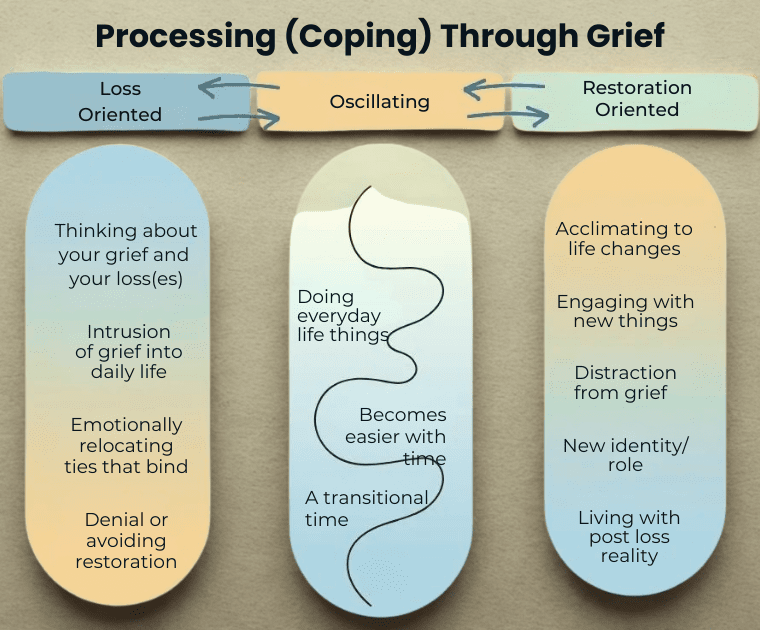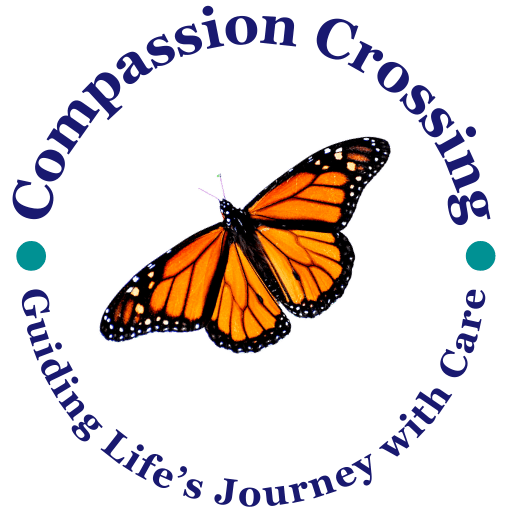
You’re Not Supposed to Feel This Way Forever
The loss hit you hard. Maybe it was sudden, perhaps you saw it coming, but nothing prepared you for this weight.
Your job disappeared, and your identity went with it. The relationship ended, and you can’t recognize yourself anymore. Your pet died and the house feels impossibly empty. The diagnosis came, and grief arrived before the loss even happened. You lost the dream you built your life around, and now what?
Everyone else moved on weeks ago.
You’re still here.
Stuck.
The Grief No One Talks About
People understand when someone dies. They bring casseroles and send cards. For two weeks.
But what about the other losses? The ones that shatter you just as completely, but don’t come with sympathy or time off.
- Losing your career and wondering who you are without that title.
- Watching someone decline slowly, grieving them while they’re still alive (anticipatory grief).
- The ambiguous loss of someone still living but no longer present—dementia, estrangement, addiction.
- Releasing the future you planned, the children you won’t have, the life that won’t happen.
You feel guilty for hurting this much. You tell yourself it wasn’t a “real” loss. You push it down because no one wants to hear about it anymore.
The isolation becomes its own kind of suffering.
When Grief Becomes Everything
Some days you can’t get out of bed. The exhaustion isn’t just tiredness—it’s your body processing trauma you can’t name.
You’re angry at people who didn’t show up, furious at the unfairness, sometimes even angry at yourself. The “what ifs” play on repeat. What if you’d said something different, noticed sooner, tried harder? Regret sits on your chest at 3 AM when sleep won’t come.
Your brain knows healing takes time. Your heart doesn’t care about timelines.
You need someone who gets it. Actually gets it. Not platitudes about time healing wounds or everything happening for a reason. Not pressure to “move on” or “find closure.”
Real support. Honest support.
Compassionate Grief Support That Meets You Where You Are
Compassion Crossing provides personalized grief support for people navigating all types of loss.
Peter M. Abraham, BSN, RN, works as a health and life navigation specialist who understands that grief shows up differently for everyone. Whether you lost a person, a job, a pet, your health, or a dream—your grief matters. Your pain is legitimate.
This isn’t traditional grief counseling. It’s compassionate guidance from someone who has walked alongside people through their most challenging moments. Peter helps you:
- Process complicated emotions without judgment.
- Navigate anticipatory grief when loss is coming but hasn’t arrived yet.
- Make sense of an ambiguous loss that has no clear ending.
- Find ways to honor what you lost as you build a life forward.
You’ll work together to create a path that respects your timeline, your beliefs, and your unique situation. No cookie-cutter approaches. No pressure to grieve “correctly.”
Where We Can Meet
Compassion Crossing offers virtual telehealth sessions nationwide, so distance doesn’t limit access to support.
For those in Kentucky, in-person sessions are available in Madison County and surrounding areas, including Clark, Estill, Fayette, Garrard, Jackson, Jessamine, and Rockcastle counties.
Your Next Step Is Simple
You don’t need to have it all figured out. You don’t need to know exactly what you need.
You just need to show up for a conversation.
Book a free initial consultation with Peter to talk about where you are and what support might look like for you. No commitment. No pressure. Just an honest conversation about your grief and whether working together makes sense.
The call takes 30 minutes. Sometimes that’s enough to feel less alone.
Book Your Free Conversation Now
Grief already isolated you enough. Let’s change that today.
